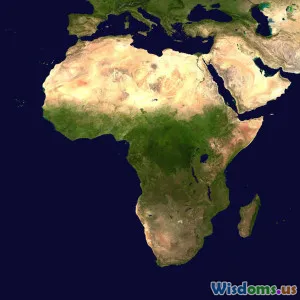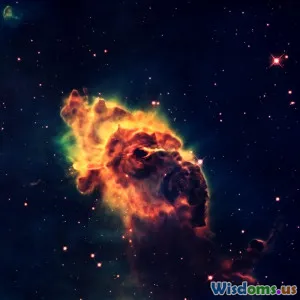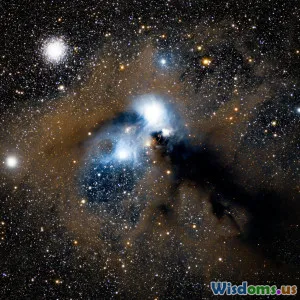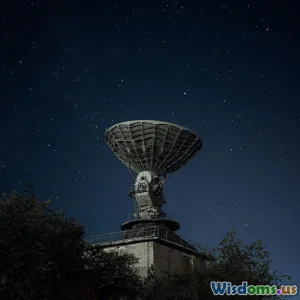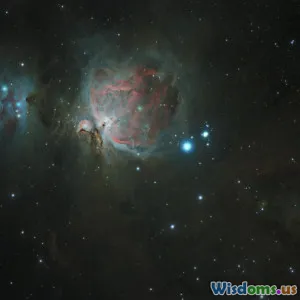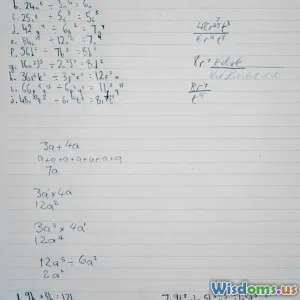
Are Black Holes Really Gateways to Other Universes
9 min read Explore the scientific theories and mysteries behind black holes as potential gateways to other universes. (0 Reviews)
Are Black Holes Really Gateways to Other Universes?
Introduction
Black holes have long captivated the human imagination. These enigmatic cosmic objects, formed from collapsed stars, pull in everything with such an intense gravitational force that not even light can escape. Beyond their well-established presence in our universe, black holes have inspired some of the most thought-provoking hypotheses in theoretical physics—among them, the idea that black holes might serve as gateways to other universes. Is this scientific fantasy or a plausible reality? This article journeys through the physics and mysteries of black holes, examining the evidence and theories that challenge our understanding of space, time, and existence itself.
What Are Black Holes?
Before exploring their possible role as inter-universal portals, it’s essential to understand what black holes are. They form when massive stars exhaust their nuclear fuel and collapse under their own gravity, compressing matter into a singularity — a point of infinite density — surrounded by an event horizon. The event horizon is the ‘point of no return,’ where the escape velocity exceeds the speed of light.
Black holes come in different sizes, from a few times the mass of our Sun (stellar black holes) to billions of times larger (supermassive black holes found at galaxy centers). Observations such as the landmark capture of the black hole’s shadow by the Event Horizon Telescope in 2019 confirm their existence, but much about their nature is still shrouded in mystery.
The Black Hole and Multiverse Connection
Wormholes and Einstein-Rosen Bridges
One of the earliest ideas linking black holes to other universes involves wormholes, theoretical shortcuts through spacetime predicted by Einstein’s General Relativity equations. Also known as Einstein-Rosen bridges, these constructs could, hypothetically, connect distantly separated points in our universe or even link to entirely separate universes.
The structure of a wormhole can be vaguely imagined as a tunnel with two 'mouths' and a 'throat.' Scientists have speculated that the intense gravitational curvature near or within a black hole might facilitate such a passage. Yet, real-world wormholes would face enormous stability issues — they would collapse too quickly without exotic matter that has negative energy to keep the throat open.
Black Hole Cosmology: The Idea of Universes Within Universes
Extending this concept, some physicists propose that what we perceive as a black hole’s singularity could birth a “baby universe” inside, separate from our own. This theory suggests that each black hole might contain a new universe with its own set of physical laws, expanding internally and independent of its parent universe.
The cosmologist Lee Smolin advanced the idea of Cosmological Natural Selection, arguing that universes that produce black holes proliferate more “offspring” universes, potentially explaining why our universe’s physical constants appear finely tuned to allow stars (and life) to form.
Quantum Gravity and Black Hole Interiors
Enter the realm of quantum gravity, a prospective theory intended to unify General Relativity with quantum mechanics. Various quantum gravity frameworks, including string theory and loop quantum gravity, offer tantalizing insights suggesting that the classical concept of a singularity may be wrong.
According to some loop quantum gravity models, the singularity is replaced by a 'bounce' effect, meaning the matter compressed in a black hole re-expands into another spacetime region, effectively behaving like a white hole — the time-reversed counterpart of a black hole.
If such bounces exist, this could mean black holes are not ‘dead ends’ but gateways to new regions or entirely different universes.
Observational Challenges and Philosophical Implications
While these theories fascinate, observational proof remains elusive:
-
Event Horizons and Beyond: The event horizon prevents any information or matter from escaping a black hole, which means we cannot directly observe the interior to verify if a universe or wormhole exists within.
-
Hawking Radiation and Information Paradox: Stephen Hawking’s discovery that black holes emit radiation altered our understanding but added mysteries like the information paradox: What happens to information swallowed by a black hole? Some believe resolving this may reveal insights about black holes as cosmic gateways.
-
Testing Multi-Universe Theories: Interactions between universes, if any, are beyond current detection capability, making the concept intriguingly philosophical yet scientifically speculative.
Nonetheless, the implications are profound. If black holes connect to other universes, it would upheave the notion of a singular cosmos and open infinite possibilities for understanding reality itself.
Real-World Insights and Misconceptions
Popular culture often portrays black holes as interdimensional portals or time machines, but scientific caution is warranted. Practical issues like tidal forces inside a black hole would disintegrate anything crossing the event horizon, a grim reality contrasting with sci-fi adventures.
Yet, recent advances show promise:
-
The Event Horizon Telescope continues to sharpen imaging techniques, potentially unveiling more about black hole characteristics.
-
Experiments in quantum information theory might contribute to resolving puzzles like the information paradox, which hints at deeper physics.
-
Theoretical work on entanglement and wormholes (ER=EPR conjecture) by physicists like Juan Maldacena suggests intriguing bridges between quantum phenomena and spacetime geometry.
Conclusion
The hypothesis that black holes serve as gateways to other universes resides at the enthralling intersection of theoretical physics and cosmic mystery. While concrete evidence eludes us, expanding research in quantum gravity, cosmology, and black hole physics keeps this field vibrant and evolving.
From the birth of baby universes within singularities to wormholes weaving through spacetime, black holes challenge our understanding of reality itself. Whether or not they truly connect to other universes, they undeniably hold keys to unraveling the deepest secrets of our cosmos.
Ultimately, black holes remind us that the universe is far stranger and more wondrous than our current science fully grasps — inviting curious minds to explore beyond the event horizon of known knowledge.
References & Further Reading:
- Penrose, R. (2020). The Road to Reality. Jonathan Cape.
- Smolin, L. (1997). The Life of the Cosmos. Oxford University Press.
- Hawking, S. W. (1974). Black hole explosions? Nature.
- Maldacena, J. (2013). Cool Horizons for Entangled Black Holes. Fortschritte der Physik.
- Event Horizon Telescope Collaboration (2019). First M87 Event Horizon Telescope Results. The Astrophysical Journal Letters.
Embarking on this journey from stellar death to possible inter-universal birth, black holes compel us to imagine the unimaginable — that perhaps every dark abyss is the threshold of a magnificent new cosmos.
Rate the Post
User Reviews
Popular Posts










